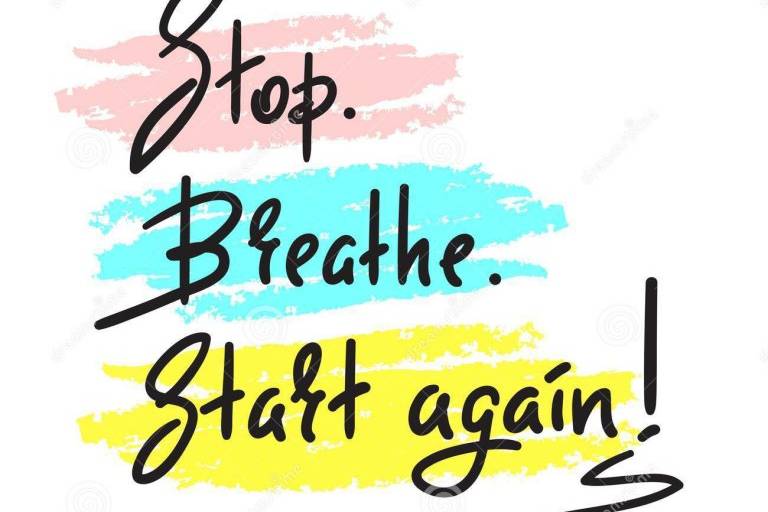Coronavirus, COVID-19, strikes fear in all of us. Will we catch it? Should we quarantine? Will somebody close to us die? What will happen to the world economy? Will there be food on the supermarket shelves? Doomsday scenarios abound. Fear wreaks havoc with our emotions, our behavior and our health. Every news bulletin comes with the news of some new school closing or event cancellation. What can we do? How can we navigate these difficult days and help those around us stay calm and centered as well?

original artwork by Ricardo Lowenberg www.ricardolowenberg.com FREE DOWNLOAD AVAILABLE
As a psychologist who has dealt for many years with emergencies, traumas and loss, the coronavirus brings with it new challenges. First and foremost is the tremendous feeling of uncertainty. We have not been here before. The landscape is reminiscent of a science fiction movie, and it is almost surreal. We may not be able to choose what happens to us, but we can choose how we react to what happens. Choosing to be proactive rather than reactive will serve us well, helping us to feel a modicum of control in a situation that is out of control, and it will help those around us, particularly the children if we are parents of young children.
So, what can we do?
- Information: Having a source of reliable information is key. It is important to remember, however, to limit exposure to media, whether it be television, radio or internet. There is a tendency in times like this to be glued to the media. In general, this tends to raise our anxiety rather than lower it. So how to get the information? Here are a few suggestions:
- Listen to the news just a couple of times a day.
- Check into a reliable website once or twice a day.
- DO NOT keep your radio tuned to news shows.
- DO NOT gather information from rumors, or sources you know are questionable.
- Practice good, yet reasonable hygiene. Follow the guidelines of the Ministry of Health in order to protect yourself.This is the season for spring cleaning, and cleaning products line the shelves of supermarkets, and it is easy to go overboard with this too.
- Talk with your kids. Children of all ages, but particularly the younger ones, are very much influenced by their parents. Helping them navigate this uncharted terrain is critical, and the calmer you are, the calmer they will be. Explaining to children what is going on, in a manner that they can understand and relate to, helps reduce confusion, panic, and anxiety. This is far preferable to their picking up misinformation from friends and media.
- Be kind to yourself. Take good care of yourself during these trying days. Physical exercise, nutritious meals, and enough sleep are a good start. Add to that an hour or two of self care, whether it be reading a good book, watching a movie, or talking with a friend can help recharge batteries that are running low.
For more information in dealing with fears surrounding coronavirus and coping with them, you can find my free downloadable book, “Free Yourself From Fear: Coping with Coronavirus.”



